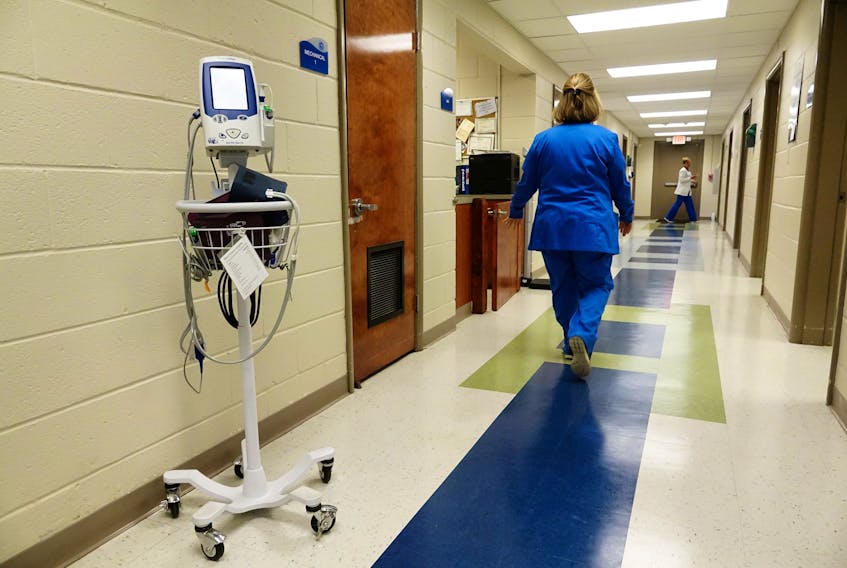Atlantic Canadians are the most pessimistic about the future of health care in their provinces, as well as the most likely to factor health care into their federal election vote, according to a new poll.
The national survey, commissioned by the Canadian Medical Association and conducted by Ipsos, found that 61 per cent of Atlantic Canadians had a negative outlook on the future of health care delivery and that 65 per cent of Atlantic Canada residents were also most likely to cite health care as the issue that worries them the most for Canada.
Quebecers were the second most pessimistic about the future of health care (55 per cent had a negative outlook), while B.C. and Alberta are the only two provinces where positive sentiments outweighed negative.
Nationally, health care topped the list of issues that Canadians worry the most about for the country, with 53 per cent identifying it as their top concern. Due to sample size, results were not broken down by province for the Atlantic region.
“Having spent some time in Atlantic Canada I can tell you anecdotally health care certainly is top of mind,” said Dr. Gigi Osler, president of the Canadian Medical Association.
Osler said between the lack of family physicians, long wait times, and highly publicized examples of failure in the health-care system — such as the case of 33-year-old mother Inez Rudderham whose video calling out Nova Scotia Premier Stephen McNeil on the doctor shortage after she went undiagnosed with Stage 3 anal cancer for two years went viral — the widespread discontent is unsurprising.
Of health-related issues that concerned Atlantic Canadians the most, 76 per cent of respondents said they were worried about a shortage of health professionals; 68 per cent were concerned about long wait times; and 63 per cent were concerned about crowded hospitals.
Additionally, residents of Atlantic Canada were also most concerned that patients will eventually need to pay more for health care, something Osler related back to the aging population in the region
“The health-care needs of our seniors are currently straining an already strained health care system,” she said. “Even though the percentage of Canadians aged 65 and older is only under 20 per cent, that group requires 50 per cent of our health-care dollars, and if you’re living in a province with an even higher percentage of seniors, that amount of money is only going to grow over the coming years.”
That’s why, Osler said, the CMA has been advocating for the federal government to provide extra funding on top of health transfers to provinces based on the number of seniors.
With a federal election on the horizon, the survey shows six out of 10 Canadians consider health care a ballot box issue. Moreover, 22 per cent of Canadians and 31 per cent of Atlantic Canada residents strongly agree that they will vote for the federal party they think has the best plan for the future of health care in Canada.
“We need to make health care a priority issue for the upcoming election. When you survey Canadians they consistently rank health care as the most important issue facing them their loved ones in the country and yet we don't have strong federal leadership,” Osler said.
The poll’s findings were based on an online survey of 3,352 Canadians conducted Feb. 25-March 4. The survey data is weighted by: gender, age, region and education in line with the latest census and is accurate to within ±1.9 percentage points, 19 times out of 20.
Twitter: @notandrea
RELATED:
- As Atlantic communities struggle to fill vacant clinics, doctors point to possible solutions
- Atlantic Canada needs more doctors: Where are they?
- OPINION: Health-care shortages of biblical proportions
- Survey: Nova Scotia doctors feel ignored, don’t trust health authority
- PAUL SCHNEIDEREIT: ‘Desperate’ ER doctors behind GoFundMe up in arms over crisis









